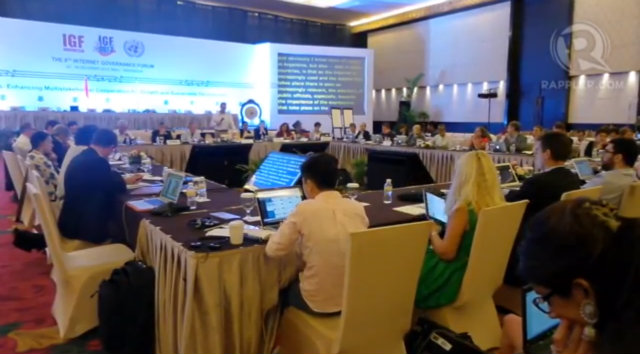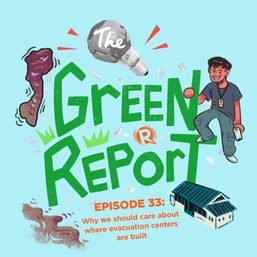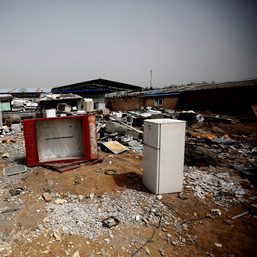SUMMARY
This is AI generated summarization, which may have errors. For context, always refer to the full article.

BALI, Indonesia – Surveillance dominates this year’s Internet Governance Forum in Indonesia, raising questions on the moral authority of China and the United States following allegations of spying.
Ayee Macaraig reports.
It’s a unique venue for a unique forum. Over 2,000 delegates from all over the world head to Bali, Indonesia for the United Nations’ 8th Internet Governance Forum. It’s the first time the forum is held in Southeast Asia but revelations of mass surveillance in the US and Europe steal the show. US officials are on the defensive over allegations the US spied on its own citizens and world leaders. Activists question the moral authority of America and China as they point fingers at each other’s spying.
MICHAEL HARRIS, HEAD OF ADVOCACY, INDEX ON CENSORSHIP: It’s incredibly depressing watching the Chinese lecture the US government on mass surveillance. It’s an incredibly depressing sight to watch when we’ve got the major leading nations of the world all engaging in gross systematic mass surveillance.
Human rights groups also call out companies like Google for collecting and handing over user data to governments. But business and aid organizations say there are benefits in using big data to solve problems like disease and hunger. For civil society groups, the danger to privacy and free expression must not be overlooked.
ALEXANDRINE PIRLOT, PRIVACY INTERNATIONAL: Your data that is online in different sources: Facebook, Twitter, your mobile contacts if you do online payments, shopping on Amazon, eBay, all this information with the way technology is being deployed, has the capacity to aggregate all this data to create a profile about yourself.
Civil society groups cite best practices in digital activism like Filipino netizens’ successful pushback against the cybercrime law.
VIRAT BHATIA, INTERNATIONAL CHAMBER OF COMMERCE: We’ve had very frank, honest dialogue, direct criticism and some reasonable defense so you know the truth lies in the middle. The trust needs to be rebuilt together in an inclusive dialogue for institutions.
All parties agree to work together to ensure that issues like surveillance do not undermine the Internet’s power. The Snowden revelations raise new challenges for the different players in cyberspace. For governments and companies, a challenge to be more accountable in their use of big data, and for civil society and ordinary Internet users, to make a stronger push for the protection of their rights.
But the bigger challenge is how to translate this discussion to concrete policy changes in the regional and national levels. They all agree that the work is just starting and the conversation in the post-Snowden era has only just begun. Ayee Macaraig, Rappler, Bali, Indonesia. – Rappler.com
Add a comment
How does this make you feel?
![[OPINION] Fossil fuel debts are illegitimate and must be canceled](https://www.rappler.com/tachyon/2024/04/IMHO-fossil-fuel-debt-cancelled-April-16-2024.jpg?resize=257%2C257&crop_strategy=attention)
![[WATCH] John Kerry: You can’t solve climate crisis without addressing ocean’s challenges](https://www.rappler.com/tachyon/2023/12/cop28-united-states-john-kerry-december-2-2023-reuters-001.jpg?resize=257%2C257&crop_strategy=attention)



There are no comments yet. Add your comment to start the conversation.